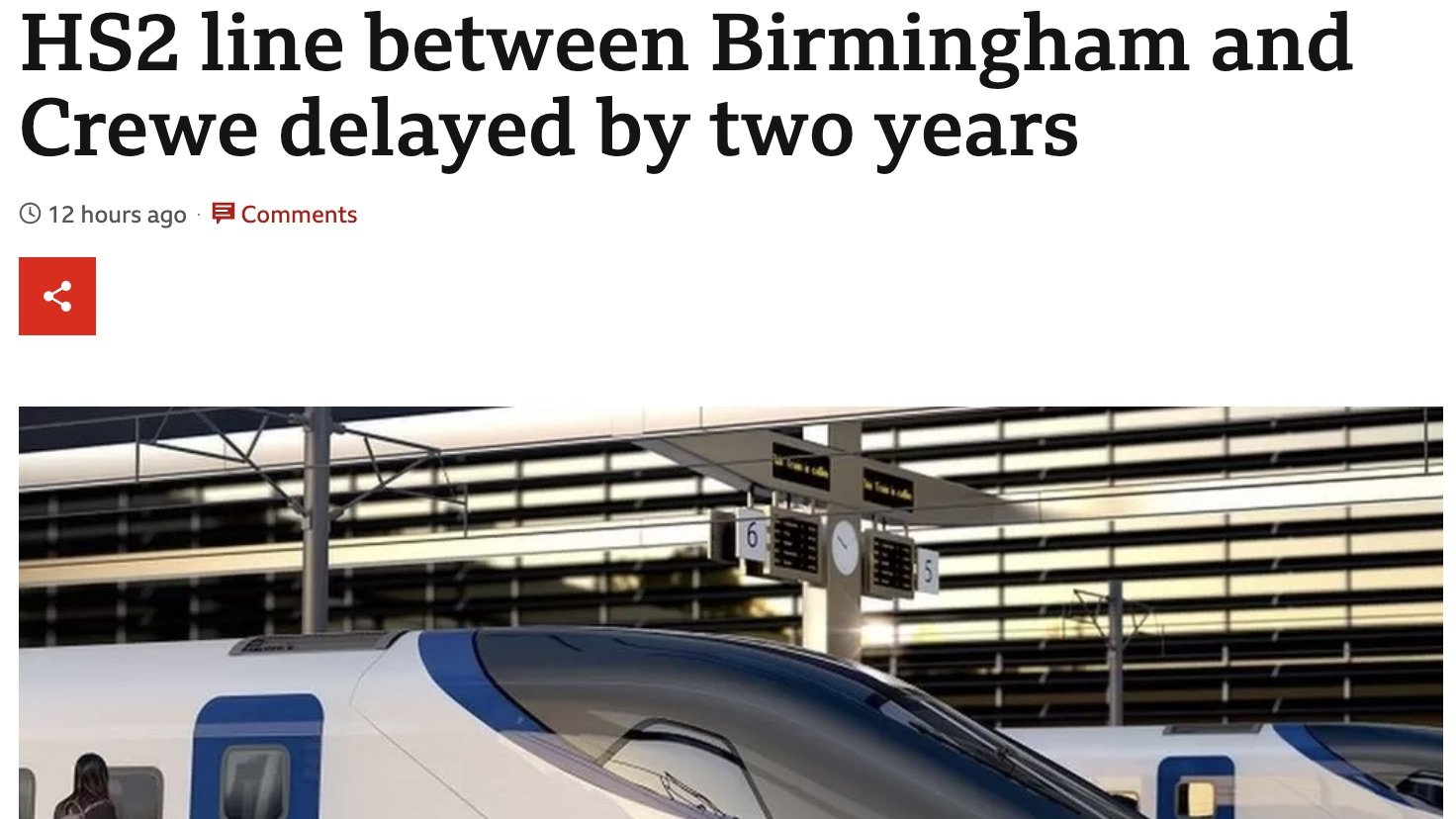Our government can't distinguish between investment and expense. It's time that changed
One reason the UK lags peers: our government can't distinguish between investment and expense. It's time to change.
BBC News, 9 March 2023
The latest announcement that government will further delay HS2 is a great example of the muddle government gets itself into. The decision is flawed for three reasons:
Anyone with some knowledge of megaprojects knows that delay does not usually reduce cost. Many project expenses are linked not to quantity or scope but time. Inflation continues, and megaproject inflation often exceed other measures such as RPI, or ‘income inflation’ (the rate of growth of the government’s tax take in this case). People and contractors leave projects, causing expensive churn. And armies of engineers and experts ‘add value’ in the extra time, increasing scope and specification, pitching the projects into further reviews and value-engineering studies.
The UK economy has underperformed not just because of Brexit but also a general stagnation of productivity and lack of investment in infrastructure and capability. Our public services like education and health are crumbling, our electricity grid is not fit for the energy transition. Transport links either do not exist, fail to deliver the promised capacity, or are priced ludicrously (recently, for a job in Manchester, it proved more economic to commute by plane from the southeast than get the train - and to hire a car to get to and from the airport rather than use taxis or park my own car there each week). Our universities produce a steady stream of useful innovation, but as Britishvolt exemplified we cannot attract investment at the scale necessary to commercialise/industrialise it.
Studies suggest the disparity in levels of infrastructure and other investment between our regions has held back growth for many years in those parts of the country that de-industrialised most rapidly and comprehensively. The ‘levelling up’ agenda has proved worthless, with disparities increasing across the country. According to recent articles in the Economist and Financial Times, the only levelling going on is the levelling down being seen as the growth of London’s economy appears to be stalling too.
That’s no way to run a country, and certainly no way to manage a decades-long capital megaproject programme
This decision appears, then, to make little sense, unless the project is ill-conceived and government trying slowly to kill it off. Which is a distinct possibility. I am reminded of the horrendous miscalculation that David Cameron’s government made to commit to a Brexit referendum (‘safe’ in the expectation that they would not win a majority at the general election and hence not be held to the ‘promise’). We may have a government scrabbling at straws in the expectation it will be replaced by the opposition in a year or so’s time. In that case, it might have save expense now in order to make it ‘someone else’s problem’ later. That’s no way to run a country, and certainly no way to manage a decades-long capital mega-project programme.
My nuclear experience points to another underlying factor - the inability of Treasury (often referred to as containing some of the 'sharpest minds in the country') to distinguish between capital, spent on assets which serve a productive purpose over a given life, and expenses, which procure a particular benefit in a once-off transaction.
If the government, like Rio Tinto when I was there, viewed each incremental capital decision through the lens of NPV, surely we'd be in a far better place...?
